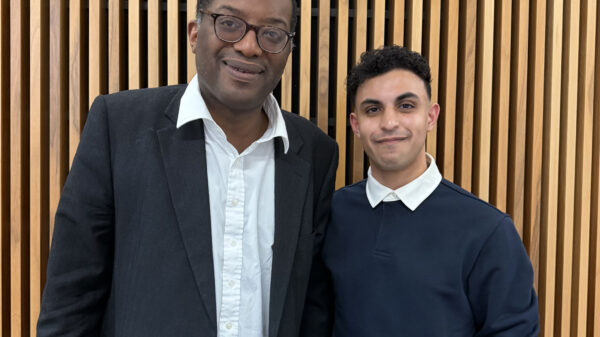King’s College London (KCL) has announced the launch of its Transforming Assessment for Students at King’s (TASK) initiative. The initiative sets out to make a raft of changes to assessment at the university, including phasing out exam-only assessed modules.
This article was first published in print on 16 September 2024.
The new framework “strongly discourage[s]” assessment of modules by exam alone. In order to accelerate the turnaround of marking and feedback, it also suggests “reduced word count expectations, reducing numbers of assessments along with optimising self-, peer- and automated feedback”. The measures are intended to achieve a two-week turnaround time for all in-module marking and feedback.
TASK will seek to more evenly spread assessment deadlines to avoid bunching at the middle and end of semesters. It aims to standardise assessment tariffs, ensuring a similar workload across different modules.
Sam Smidt, Academic Director, King’s Academy highlights three elements of TASK: “Firstly, ensuring there is a sense of fairness, so that the work required for a 15 credit module in one place is comparable to that in another. Secondly there is a commitment to reduce the overall assessment load for students and staff and thirdly, to understand, and avoid where possible, assessment ‘bunching’ where students have several competing deadlines.”
Student Feedback on Assessments
The overhaul of assessments comes in response to what King’s called “clear and consistent feedback” from students and staff. TASK reflects an effort to give students a voice in their academic experience.
Louis Edwards-Munro, a third-year Liberal Arts student at King’s, weighed in on present concerns about student assessments at the university. He told Roar:
In December, all my deadlines were bunched up within a few days of each other — it was extremely stressful and I felt like I wasn’t able to give my full attention to each assignment.
A module being 100% assessed on one piece of work is very stressful. On my semester abroad in Germany, assessment was also based on an in-class presentation which I thought was effective.
Louis Edwards-Munro, King’s student
This may also be the case at King’s soon: “The TASK initiative is looking across our courses to identify potential places where other forms of assessment, such as coursework or practical assessments may be more suitable and reflect this accordingly,” said Smidt.
On the question of AI, Louis added:
I don’t use AI much to be honest, in its current state it makes mistakes, so you have to be careful. However, there are ways of using it effectively, and it will be essential to academic research in coming years so it shouldn’t be taboo. It’s a reality of modern-day life and we need to accept it.
Louis Edwards-Munro, King’s student
What is included in TASK?
Addressing the new challenge that AI poses towards traditional forms of assessment, TASK advocates the ethical use of the technology, highlighting the need to properly attribute the use of AI. Because of the lack of reliable AI detection tools, the document recommends that assessors avoid claims of misconduct based on suspected AI use. For the first time, however, the use of a new assessment platform will “give students and teachers confidence that the work is the students’ own”.
Additionally, TASK emphasises a move towards “programmatic assessment”. This designs assessments to encourage interconnection across modules within any given programme of study. “Programmatic assessment is the idea that across a whole programme, the assessment is mapped out so that students are not assessed on the same learning outcomes repeatedly. This might use cross-modular or synoptic assessment and help avoid over-assessment,” shared Smidt. However, it is also accepted that such a move would likely also require King’s to reduce the number of elective modules available to students.
Speaking at an event for the launch of The Assessment and Feedback Framework, a key component of TASK, Vice-Chancellor Shitij Kapur said: “I think we have to rethink… we are assessing too much and not ‘feedbacking’ enough”. He emphasised the strain the existing assessment system placed on staff time, as well as that of students.
The implementation of TASK will largely take place in the academic year of 2025/26, with departments being given the 2024/25 year to prepare.











